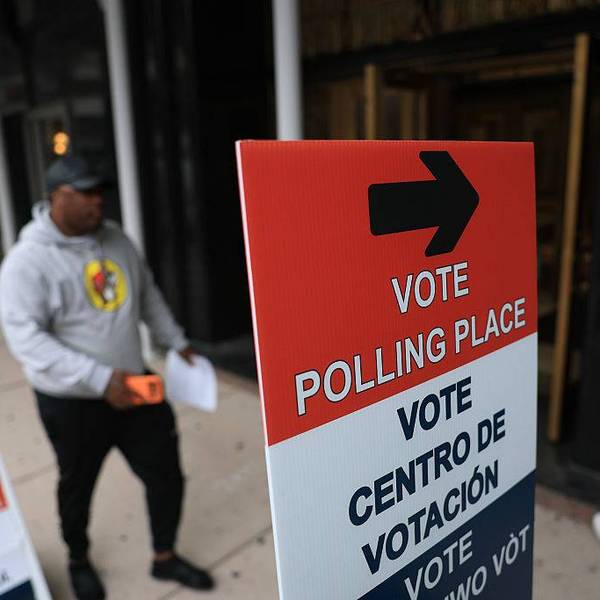The 2020 election will have enormous consequences for the pandemic, the planet, the economy, our democracy and people's lives. And that will be true even before the next Congress and administration take office.
After the vote, the current Congress will have another six weeks or so in office.
For some members, it will be a lame-duck session -- their last weeks before heading back to corporate boards and the private sector. For others, it will be a chance to finish some unfinished business and provide relief to millions of people in this country.
Nearly a quarter of a million Americans have already died from COVID-19, and more than eight million have been infected. The pandemic continues to ravage this country, destroying lives, our economy and vulnerable communities -- and that doesn't stop for elections.
Congress's first job in those last weeks will be to provide the relief we so desperately need. That includes restoring the lapsed $600/week supplemental unemployment insurance; funding our cities and states so they can pay for healthcare workers and supplies; and expanding job support and emergency access to healthcare and food.
In the wake of the Trump administration's efforts to destroy the Postal Service to undermine mail-in voting during the pandemic, those last weeks could also see some initial efforts to rebuild the battered agency.
The existing Republican-dominated Senate will still be in office, so there will be no chance of removing Postmaster General Louis DeJoy, the Trump appointee responsible for so much of this anti-democratic agenda.
But it's still possible to envision some repair efforts that could gain even veto-proof majorities -- starting with a multi-billion dollar appropriation to return the USPS to financial security. All just in time to mail out invitations to the "New Congress is coming to town" parties early next year.
Looking beyond our own shores, Congress should also take those in-between weeks to reexamine the global nature of the pandemic and what it's going to take to end it.
It's bad enough that our federal government has refused to take responsibility for a national response to the pandemic here in the United States. Even worse, it's refused to even acknowledge the necessity of international coordination.
Trump even withdrew from the most important center of global anti-pandemic coordination, the World Health Organization, and stopped paying dues to the WHO just as the virus was reaching its first heights.
Luckily, most of the rest of the world understands the need for international connection. People around the world are watching us, recognizing that our elections will have enormous consequences for them -- almost as much as for us.
After all, what happens in our country affects people all around the world. Authoritarian governments rising in Brazil, the Philippines, Hungary, and beyond have relied on cues from the Trump administration, including its disdain for the virus and necessary preventive measures.
Congress can move quickly to reverse that, calling on the State Department to immediately rejoin the World Health Organization and authorizing funds to pay all our back dues. It can also allocate funds to join the U.N.-sponsored COVAX coalition ensuring a globally equitable allocation system for vaccines.
All that would be a welcome down payment for the next Congress and administration, which will have the enormous task of repairing our relationships with the rest of the world.
That should begin by reversing the militarized initiatives that have undermined U.S. standing and caused so much death and destruction. For instance, Congress will have to work to end U.S. arms sales to Saudi Arabia as a step towards ending U.S. involvement in Yemen's civil war, the world's worst humanitarian disaster.
They'll need to cancel the 2001 and 2002 Authorizations for the Use of Military Force that have been used to justify the ever-expanding "war on terror" for almost 20 years, despite near-universal agreement by experts that there is no military solution to terrorism.
Finally, Congress will need to end funding for the ongoing drone wars in Afghanistan, Yemen, Iraq, Somalia, Syria, and Pakistan, and end authority for war-by-other-means economic sanctions now imposed most harshly on Iran and Venezuela but on other countries too.
They've got six weeks.
And even a lame-duck Congress must remember their actions have global consequences too.




